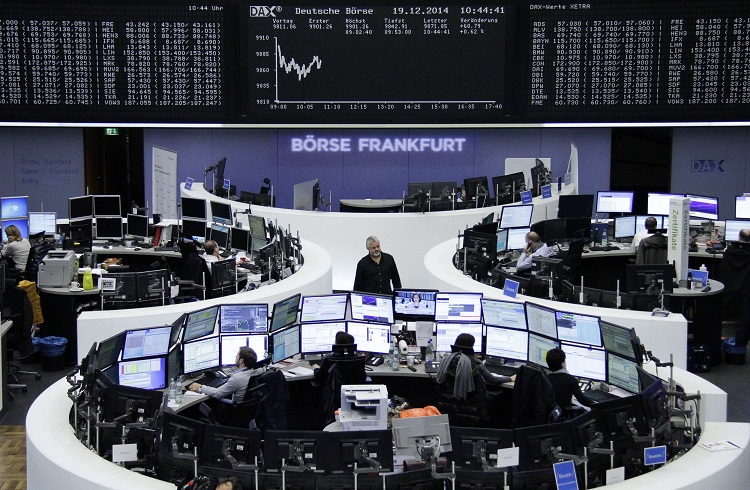US-China Trade war: A drag on global equity prices
September 18, 2018 | Expert Insights

European bourses trailed Asian equity markets fuelled by news of fresh American sanctions on Chinese goods.
Background
The United States and China have a robust framework of the trade. The US-China trade relationship supports around 2.6 million Jobs in the United States. In 2015, China purchased $165 billion in goods and services from the United States. In 2016, China was the third largest market for US exports. China is also the US’s biggest overseas creditor after Japan. In 2017, China’s trade surplus with the United States widened to $347 billion.
Current US President Donald Trump has been vocally critic of China. He blames the country for the loss of jobs within the US. He has also often criticised their “very unfair and one-sided” trade relationship.
In recent months, experts have sounded the alarm about an impending trade war between US and China. These fears solidified in March when US President Donald Trump announced global import tariffs of 25% on steel and 10% on aluminium, and China promised retaliation. Since then, US has notified Beijing of $60 billion in annual tariffs. Trump has proposed tariffs on 1,300 industrial and medical products (worth $50 million), speculated to target Beijing’s “Made in China 2025” policy. He has also reportedly asked the trade department to investigate additional tariffs worth $100 billion. Washington has complained to the WTO about protection of intellectual property.
In retaliation to the steel tariffs, China has increased tariffs by up to 25% on 128 US products, including pork and wine. It also announced potential tariffs on 106 US goods, including soybeans, chemical, agricultural and transport goods. China is the largest export market for American soybeans, worth $14 billion annually and accounting for 65 % of US soybean exports.
Analysis
The month-long trade conflict between the world’s two largest economies has rattled investors who fear an escalation will eventually disrupt global growth. Meanwhile, the talks between the two countries have failed to make any headway.
The pan-European STOXX 600 index fell as much as 0.2, while Germany’s DAX, home to large exporters and carmakers, dropped half a percent. France’s CAC 40 and Britain’s FTSE 100 fell 0.2 percent and 0.1 percent respectively.
Europe’s STOXX 600 had last week enjoyed its best weekly gain since July as the Turkish central bank’s interest rate rise brought a broad relief rally, but the mood was less buoyant on Monday.
However, after the initial falls, there were signs that some investors were ready to look past the dispute, with European markets reducing their losses to trade close to flat.
World shares remain more than 5 percent off their record highs touched in January, based on the MSCI world equity index, which tracks shares in 47 countries.
In currency markets, the dollar succumbed to some selling pressure, with the greenback index down 0.2 percent at 94.778, having bounced from a low of 94.359 at the end of last week as Treasury yields rose.
Emerging market currencies were mostly weaker after a strong run last week following the Turkish central bank’s decision to sharply raise interest rates to shore up confidence in the lira.
Oil prices rebounded from earlier losses as supply concerns outweighed assurances from Washington that Saudi Arabia, Russia and the United States can raise output fast enough to offset falling supplies from Iran and elsewhere.
Assessment
Our assessment is that US’s decision to weaponize tariffs instead of negotiation is increasing volatility on global markets. We feel that China’s ability to retaliate might be limited especially since the outbreak of the deadly swine flu strain impacting Chinese pork prices, which will push up CPI inflation.








Comments